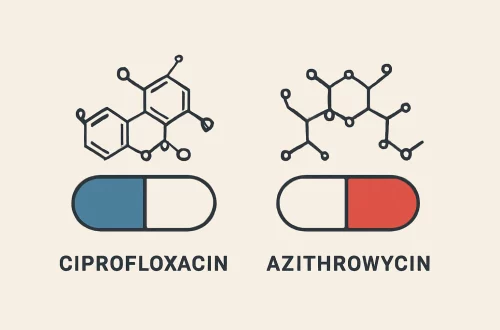
Citalopram vs Cymbalta Which Antidepressant is Right for You
Citalopram and Cymbalta are two commonly prescribed medications that serve distinct purposes in the treatment of mental health conditions. Both medications are utilized to address various forms of depression and anxiety, but they belong to different drug classes and operate through unique mechanisms of action. Understanding the differences and similarities between these two medications can be crucial for patients and healthcare providers alike. As mental health issues continue to rise globally, effective treatments are essential for improving the quality of life for those affected.
Citalopram, a selective serotonin reuptake inhibitor (SSRI), primarily targets serotonin levels in the brain to alleviate symptoms of depression and anxiety. On the other hand, Cymbalta, known generically as duloxetine, is a serotonin-norepinephrine reuptake inhibitor (SNRI) that affects both serotonin and norepinephrine neurotransmitters. The choice between these medications often depends on individual patient needs, potential side effects, and the specific mental health conditions being treated.
In this article, we will explore the characteristics, uses, side effects, and considerations for both Citalopram and Cymbalta, providing a comprehensive overview to help patients and caregivers make informed decisions.
Understanding Citalopram: Mechanism and Uses
Citalopram is primarily prescribed for the treatment of major depressive disorder (MDD) and generalized anxiety disorder (GAD). As an SSRI, it works by selectively inhibiting the reuptake of serotonin in the brain, which increases serotonin availability in the synaptic cleft. This boost in serotonin is thought to lead to improved mood and reduced anxiety.
Patients often report that Citalopram helps alleviate feelings of sadness, hopelessness, and anxiety. It may take several weeks for individuals to experience the full benefits of the medication, as it gradually alters brain chemistry.
Citalopram is generally well-tolerated, but it is essential for patients to work closely with their healthcare provider to monitor their response to the medication. Common side effects may include nausea, dry mouth, drowsiness, and changes in sleep patterns. In some cases, patients may experience sexual side effects, which can affect adherence to treatment.
Moreover, Citalopram is sometimes prescribed off-label for other conditions, such as obsessive-compulsive disorder (OCD), panic disorder, and even chronic pain management. However, the primary focus remains on treating depression and anxiety.
It’s important for prospective users to discuss their medical history with their healthcare provider, as certain conditions and medications may interact negatively with Citalopram. Additionally, discontinuing the medication suddenly can lead to withdrawal symptoms, so it’s crucial to follow a healthcare provider’s guidance when adjusting the dosage or stopping the medication.
Cymbalta: Dual Action and Indications
Cymbalta, or duloxetine, is an SNRI that affects both serotonin and norepinephrine levels in the brain. This dual-action mechanism allows Cymbalta to target a broader range of symptoms associated with depression and anxiety, as well as chronic pain conditions like fibromyalgia and diabetic neuropathy.
The effectiveness of Cymbalta in treating major depressive disorder is well-documented, and many patients find relief from emotional and physical pain associated with their conditions. By enhancing the availability of both serotonin and norepinephrine, Cymbalta may provide a more balanced approach to managing various symptoms.
In addition to its primary use in treating depression and anxiety, Cymbalta is also approved for the management of chronic pain conditions. This makes it particularly useful for patients who experience both mental health issues and chronic pain, as it can address multiple symptoms with one medication.
However, Cymbalta is not without its side effects. Commonly reported adverse effects include nausea, dry mouth, fatigue, and constipation. Some patients may also experience increased sweating or dizziness. As with Citalopram, there is a risk of withdrawal symptoms if the medication is discontinued abruptly.
Patients considering Cymbalta should consult their healthcare provider about their medical history, particularly if they have a history of liver issues or are taking other medications that may interact with Cymbalta. This careful consideration is essential to ensure the safe and effective use of the medication.
Comparing Side Effects and Risks
When evaluating Citalopram and Cymbalta, it’s crucial to consider the potential side effects and risks associated with each medication. Both drugs have their own profiles of side effects, which can influence a patient’s choice of treatment.
Citalopram’s side effects are generally mild and may include nausea, drowsiness, and sexual dysfunction. However, some patients may experience more severe reactions, such as serotonin syndrome, a potentially life-threatening condition that can occur when serotonin levels become excessively high. Symptoms of serotonin syndrome include rapid heart rate, hallucinations, and severe muscle rigidity. This underscores the importance of monitoring medications and dosages closely.
On the other hand, Cymbalta has a more varied side effect profile due to its action on both serotonin and norepinephrine. While it may be effective for managing pain and mood, patients may face risks such as increased blood pressure, liver problems, and severe withdrawal symptoms. The dual-action nature of Cymbalta can also lead to a higher incidence of side effects compared to SSRIs.
It’s vital for patients to engage in open discussions with their healthcare providers about potential side effects and to weigh the benefits against the risks when choosing a medication. Individual responses to medication can vary significantly, and what works well for one person may not be right for another.
Additionally, factors like age, sex, existing health conditions, and other medications can all influence how a patient reacts to either Citalopram or Cymbalta. Therefore, personalized treatment plans are essential for achieving the best outcomes.
Making an Informed Choice: Factors to Consider
Choosing between Citalopram and Cymbalta involves several considerations that go beyond just the medications themselves. The decision should be based on a comprehensive assessment of the patient’s specific needs, medical history, and lifestyle.
One of the primary factors to consider is the nature of the mental health condition being treated. For patients whose symptoms primarily revolve around anxiety and depression, Citalopram may be a suitable option due to its focused action on serotonin. Conversely, if chronic pain is also a significant concern, Cymbalta may be more appropriate since it addresses both mood and pain.
Another important consideration is the side effect profile of each medication. If a patient has a history of experiencing adverse reactions to SSRIs, they may be more inclined to try Cymbalta and vice versa. Additionally, past experiences with medications can inform a patient’s comfort level and willingness to try a new treatment.
Patient preferences also play a crucial role. Some individuals may prefer a medication that has been around longer and has a more established track record, while others might be open to newer options that offer dual benefits.
Lastly, ongoing communication with healthcare providers is vital. Regular follow-ups can help track the effectiveness of the medication and make adjustments as necessary. In some cases, patients may find that they need to switch medications altogether if they are not responding as expected.
In conclusion, the choice between Citalopram and Cymbalta should be made collaboratively, with careful consideration of individual circumstances. Both medications offer valuable benefits, but they also come with risks that must be managed.
**Disclaimer**: This article is for informational purposes only and does not constitute medical advice. Always consult with a healthcare professional for medical concerns or before starting or stopping any medication.




